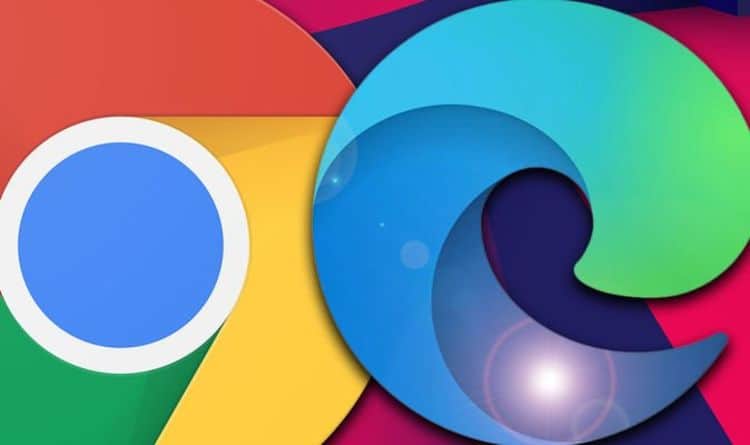

Microsoft Edge vs. Google Chrome: The Enterprise Browser War Continues.
Microsoft Edge vs. Google Chrome: The Enterprise Browser War Continues
It’s no secret that Edge and Chrome have been fighting for your enterprise’s default browser status for years, even if it wasn’t always obvious. Recently, Microsoft issued a Windows update that broke a Chrome feature, making it harder to switch your default browser and annoying enterprise Chrome users with popups.

A New Chapter in the Google/Chrome Browser War
A Windows update this April caused enterprise users of Windows to get the Windows default settings page to pop up every time they opened Chrome. There was no way to disable this function without uninstalling the operating system update, which in turn forced Google to disable the setting. This isn’t the first time Microsoft has made petty moves against browser competitors, nor will it be the last.
Battle of the Browsers
Back in July 2022, Google silently rolled out a new button in Chrome for Windows. Found in near the top of your screen, it allowed you to change your default browser in one click without pulling up your system settings. The functionality has been flawless for the past eight months until Windows update KB5025221.
Soon after the update, users were quick to notice that every time they opened Chrome, the default app settings of Windows would open as well. Normal users of Windows simply couldn’t use the one-click “Make Default” button on their browser as it no longer worked. This issue was solely for all enterprise users of Windows.
Users of other browsers like Chrome and Firefox will note that this isn’t the first time Microsoft has taken a jab at the competition. When using Windows machines, enterprise users will routinely find themselves faced with barriers when trying to use browsers besides Edge. From overriding the user’s selection of default browser to pop-ups and misleading warnings that Edge is safer than the competition, Microsoft is hard at work to convince enterprises that Edge is the better option in unnecessary ways.
Edging Out the Competition
This is only one facet of Microsoft’s battle tactics against people that choose to use anything but Edge. Chrome holds the lion’s share of users, with a reported 66% market share. Earlier this year, Microsoft inserted full-sized ads into the search results if you looked up “Google Chrome”, which said “There’s no need to change your default browser.”
Microsoft even went so far as to put Edge ads on the Chrome download website, stating “Microsoft Edge uses the same technology as Chrome, with the added trust of Microsoft.” While many may say all’s fair in love and marketing, there’s a fine line between professional competition and being petty.
Browser History Repeats Itself
Even back in 2021 with the release of Windows 11, the use of darker patterns on the default settings screen and the need to manually change the default browser for different web links was only a drop in the bucket of Microsoft-based consternation. Despite their best efforts, they slowly rolled back these annoyances only to add new ones to the mix later on, such as the recent Chrome browser fiasco.
Some readers may remember that back in the 90’s, Microsoft was sued by the US Department of Justice for its attempts to disrupt the competition of Internet Explorer (IE). Over two decades later and Microsoft is still the passive-aggressive internet browser bully, poking enterprise users in hopes that they will become annoyed enough to switch over and stick around.
What Does This Mean for Enterprise Users?
Unfortunately, you’re caught in the middle with little way of avoiding the crossfire. Enterprises means money and lost Edge users means potential revenue down the drain. You can expect strange bugs and odd settings changes every few months until you either switch to Edge or Microsoft gets caught in the act. They’ll change their tune and may even revert some of the changes, but there will be more down the road.
If Edge were truly the superior browser, the user experience would speak for itself and the need for petty feuds in a market already dominated by Microsoft wouldn’t be an issue. Sadly, small annoyances at the cost of enterprise user convenience are bound to be commonplace well into the future, or at least until someone dethrones Chrome and becomes the new boss on Wall Street.
While Microsoft may have high hopes that Edge will one day hold the crown, actions like this show that they are still far from most enterprise’s top browser choice.
